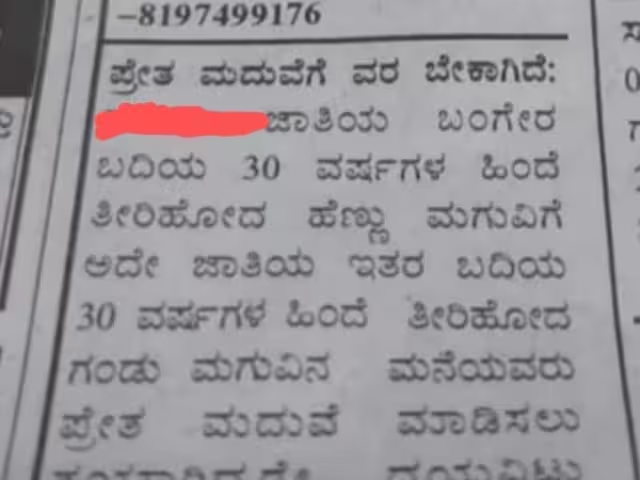What Does it Mean for Kashmiri Pandit Voters in Jammu and Udhampur to Have ‘Cumbersome’ Form M Scrapped?
The Election Commission (EC) has thankfully eliminated Form M, allowing Kashmiri Pandit migrants living in the regions of Jammu and Udhampur to vote in their home parliamentary seats in the Valley. According to the EC, these will now be plotted out, with designated voting places being placed in the areas where Kashmiri Pandits now reside.

Form M used to be required for voters from the Valley who had been relocated before to each parliamentary and assembly election in Jammu and Kashmir.
People who live outside of Jammu and Udhampur must still submit Form M, and they have the option to self-attest the certificate that goes with the form. This certificate formerly needed to be verified by a gazetted official.
Form M: WHAT IS IT?
The purpose of the form was to enable Kashmiri Pandit migrants to cast ballots in their valley seats during the 1996 Jammu and Kashmir Assembly elections.
Heads of Kashmiri Pandit migrant households who reside in various locations around Jammu and the nation fill it out.
The qualified migrant voter might get Form M from the Relief Commissioner’s office or their relevant zonal officer at the announcement of any Assembly or Lok Sabha elections, fill it out, and have it signed by a gazetted official. They had to attach their photos, state that they were originally from the Valley before migrating, and provide information on any adult family members who were old enough to vote.
In order for Kashmiri Pandits to vote for their home constituencies from the places they were living in, Form M was established to identify those who left the area of militancy in 1989 and relocated to safer areas in Jammu and other places.
WHAT ARE THE SAYINGS OF KASHMIRI PANDITS?
The migration of Pandit families from Kashmir has long called for voting procedure simplification. There was no assurance that they could cast a ballot on election day, even after completing Form M. A migrant residing in one zone has sometimes been registered to vote at a polling place in another zone.
Out of the 1 lakh migrant voters who registered to vote, only 13,537 have participated in the Lok Sabha election in 2019.
Describe the updated arrangement.
The election panel said that each of the 21 zones (20 in Jammu and 1 in Udhampur) would have a minimum of one Special voting Station thanks to the mapping of all 22 special voting stations (21 in Jammu and 1 in Udhampur).
Each of these Special Polling Stations will have its electoral register extracts removed from the basic electoral rolls of the associated assembly constituency. The appropriate AERO Migrants in Jammu and Udhampur will notify the voters about the Draft Electoral Roll Extracts for each Zone, which will be used as the rolls for the corresponding Special Polling Stations.
The ARO Migrant Jammu, the nodal officer for postal ballots, will make sure that, in the event that any elector submits Form 12C, a “PB” marking will be placed next to their name in the corresponding electoral roll extracts. This double check will ensure that no voter who chooses to cast a postal ballot by filling out Form 12C is denied the opportunity to vote at special polling places.
“Self Attestation” on Form M is enough for those who are lodging outside of Jammu and Udhampur. However, migrants will need to provide an EPIC (voter ID card) or any other alternative document that the EC has approved for voter identification at voting places in order to prevent impersonation at the Special voting Stations.
In all, 1.13 lakh Pandit migrants from Kashmir have registered to vote in the three Kashmiri Lok Sabha seats of Srinagar, Anantnag, and Baramulla.
The first five phases of the Lok Sabha elections in the Union Territory are scheduled for April 19 in Udhampur, April 26 in Jammu, May 7 in Anantnag-Rajouri, May 13 in Srinagar, and May 20 in Baramulla. On June 4, there will be a vote count.







